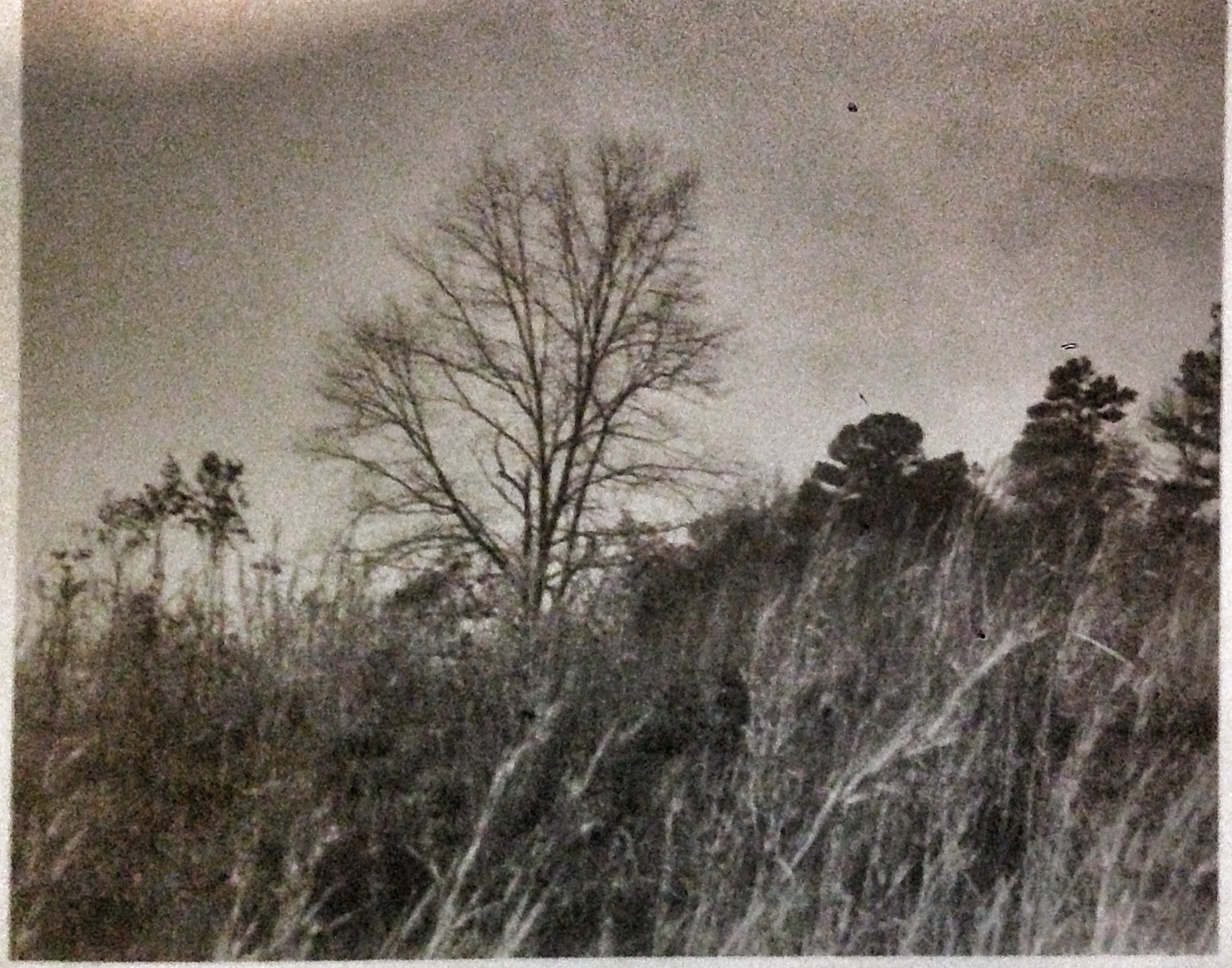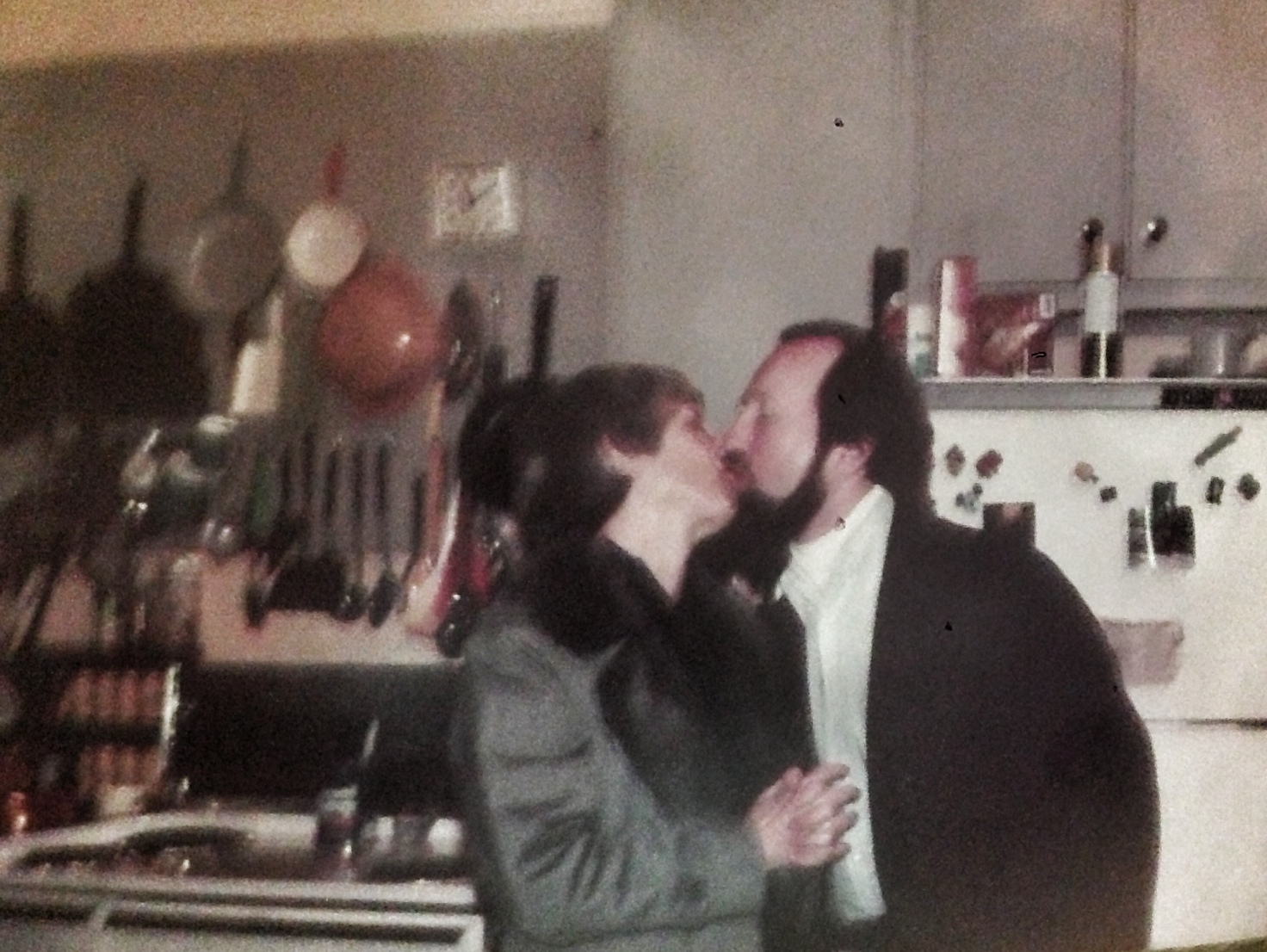03 May Blunt

I think about my father in waves. I can go for weeks without thinking much about him, but then it seems like he’s everywhere, like cow pies in a pasture. We had cows in a pasture behind our house growing up, so that’s not a random reference. It’s also kind of something he might say, except he would have used the word “shit” and not cow pies. He cursed like a sailor, and not just at home.
After he died, I met the mother of a friend in NY. She was from North Carolina and asked me, “Galinsky? You don’t happen to know David Galinsky?” I said that I did. “Oh my, he was my psychology professor, and in my first class he used the word fuck. I almost fainted. He was an amazing teacher.” This was not a surprising story. In fact, that is the story of my father. He was as complex as they come, and yet I don’t think he had too many enemies.

Just yesterday I found some old photos of him that I took when I was about 12, so he’s been on my mind a lot the last day or so. Shortly after finding the photos, I met an old friend for coffee and I told him about the way in which my father was hit by a car 8 years ago, and about the fact that his struggles with stress-related illness were involved in his death.
I have empathy for him about problems that he had, but also anger, because those problems carry over. It’s nature and nurture. Behavior is carried in our genes but it’s also learned, and its very difficult to unlearn. He was not just tight with money, he was so tight it was problematic. He would drive halfway across town to save 5 cents on a gallon on gas, and visit 3 supermarkets with a big envelope of coupons each weekend. He grew up poor in the tail end of the Depression, so there was some sense to it, but at a certain point he needed to let it go; this fear about not having money. It overwhelmed him, and it overwhelmed us as children. It took me a while to get over my own problems with money. I’m still very tight, but I do better about not obsessing about it in the way that he did. It has, however, taken a lot of effort to change those patterns.
This afternoon the same friend helped me cut down some trees and shrubs around the house that I grew up in, and now inhabit with my own family. When I was a kid, I was tasked with trimming the cypress shrubs in front of the house. It’s been at least 25 years since this was my regular job. Once I left for college, I would hack at the yard sporadically when I came to visit, but my father couldn’t be bothered. Things have gotten a little bit out of control, and the front door shrubs were damaging the roof because they had grown so tall. They needed to go, but it was difficult to make it happen. Something about that much time passing, the entropy aspect of the damage, and the childhood friend, all made me feel the presence of my father in a very deep, yet very unconscious way. The best way to describe it would be a heaviness that I don’t understand. It felt good to clear things out though. Once the shrubs were down, light just streamed in.
After my friend left, I sat down to answer emails and saw an article about Peaches Geldoff. Her mother died of a heroin overdose when she was 10. This week, shortly after posting a picture of herself and her mother, Peaches followed her down the same path, leaving a one year old son in the other room. The story was about fate, rather than intention, and it made me once again think of my own efforts to avoid the same struggles as my father. A few minutes later I got an email about my father from a neighbor. Like I said, these things tend to come in waves.
I grew up in Chapel Hill, NC shortly after segregation in schools ended. I don’t recall being aware of segregation when I was in elementary school. However, when we moved on to junior high, social differences were heightened and people separated a good deal more by class and race. My parents were both from the North, and I knew that they were involved in integration efforts but they didn’t make too big a point of it.
My childhood, and the way my parents approached our education, informed our decision to send our children to our neighborhood school in Brooklyn. We were a little surprised to find she was the only white kid in her class in kindergarten, but it was a great school and she thrived there. The charter vs. public school battles that have risen to the national stage were just starting to rage when she entered public school. We became active in the school, and the debate. I penned an op-ed for our local NY Times blog that asked the simple question,
The hardest question is this one: Is it somehow different for people to demand school choice in 2010 than it was in 1960 for people in Boston or Chicago or New York to move to the suburbs to avoid school integration? If we step back and look at it honestly, school choice leads to a great deal of segregation by class and race. Whose example do we want to follow?That of the ones who moved to the suburbs, or the ones who stayed and worked proactively to integrate the schools?
I lost several friends for asking this difficult question.
The email I got today makes it clear that I wasn’t as skilled at negotiating these fraught waters. It made me feel prouder of my father and more connected than ever before. I’ll simply print the story below, as it came to me, because I think it speaks for itself, and will make a lot of sense based on the words above. The story comes in the form of a letter to a city council person, in a request to listen more openly to her constituents.
“Dear XXXX XXXX
I have always believed your heart is in the right place but have
become increasingly annoyed at you because, though you campaigned on
inclusiveness and encouraging community participation, you have
repeatedly acted against this goal. I know you have gotten a lot of
critical feedback and my intention in writing you today is not to pile
on more, but to ask that you change and start respecting folks who are
well informed and have studied these matters as much or more than you have.
It was a good sign that at the end of Wednesday’s meeting you seemed open
to changes that would improve the FBC.In spite of my annoyance, I woke up this morning with a memory of
myself in graduate school and it is somewhat parallel and I relay it to
you in the hopes that it may help: I was in my second year of graduate
school and I was interning in community psychology
which meant that every Mon. morning I drove two and a half hours
to a town I had never heard of, to intern/consult in an all black high school.
After about 4 months I was invited to join the team and stay on for a community
wide PTA meeting for all the schools in the town.My supervisor was Dr. David Galinsky the head of clinical psychology at UNC.
He had a reputation for being direct and blunt but also for having a great
sense of humor. When I heard parents get up at the PTA meeting
and make racist remarks I was indignant and got up and righteously
scolded them for being racist;folks in this little southern town were
stunned that I, a youngster, was lecturing them and calling them all racists
after being in their community once a week for only a few months. After the
meeting Dr. G told me that I single handedly brought the cause
of integration to a halt–a cause which they had painstakingly been
working on for years in this particular community. He told me that
I had impulsively blurted out my opinions oblivious to the context
and consequences. I was stunned. Galinsky said it has nothing to do
with whether you were right or wrong you have done great damage. Rather
than rubbing it in, when he saw how distraught I was, he joked with
me that community psychology was not a field I should go into since
it requires being diplomatic and political and these were not my
strengths. I took his advice. Galinsky and I became fast friends
after that– I so appreciated him for being honest with me. It
was one of the most important learning experiences I had in graduate
school.When I remembered this incident I felt more empathetic towards you
and less self-righteously indignant towards you. I believe
you will learn and grow from your experience.

No Comments